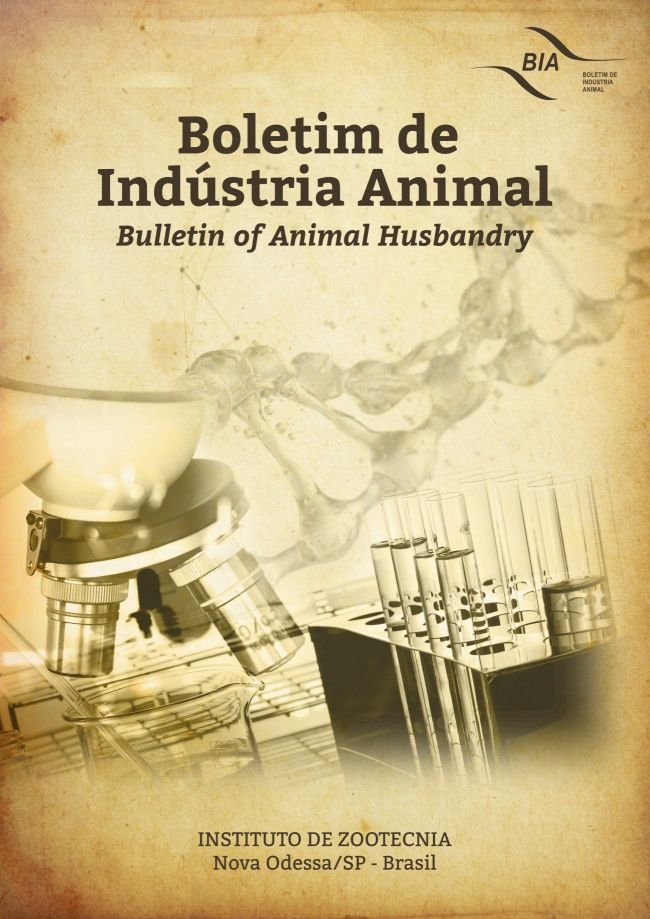Analysis of the Farmers€™ Perspective on Their Limitations for the Adoption of Different Pasture Management Practices
Palavras-chave:
Questionnaire, production efficiency, recovery of degraded areasResumo
To meet the increasing demand for higher productivity and sustainability of Brazilian livestock production, it is necessary identify the limitations of the production process. The objective of this work was to descriptively evaluate the perspective of rural farmers interviewed regarding the challenges of pasture management practices by listing the selected management factors (SMF): cost of fertilization (CF); implementation cost (IC); cost of herbicides (CH); soil correction/mechanical preparation (SC); lack of labor (LL); seedling implantation (SI); and quality and availability of seeds (QAS), in descending order of limitation to the farmers. A questionnaire was applied online to obtain information for the characterization of these farmers and their properties, and SMF was ranked a 1 to 6 Likert scale, where 1-2 denoted small limitation, 3-4 as limiting and 5-6 as very limiting. The choice of this type of scale was to understand the behavior of the farmers through a self-descriptive statement, to establish different intensities of answers, allowing a qualitative answer to quantitative questioning. The questionnaire obtained 33 answers among those sent: from the Northern region (respondents from the state of Tocantins €“ 1 answer); from the Midwest (respondents from the state of Mato Grosso do Sul €“ 3 answers; from the Southeast (respondents from the state of Minas Gerais - 8 answers); and from the Southern region (respondents from the state of Paraná - with 4 answers). As observed, the respondents were mainly classified as small farmers (61%), who do not use technical assistance (68%), and plant with high capacity rates (36% between 3.1-6.0 or more than 6.0 UA.ha-1). It was also possible to identify that these farmers perform on average three pasture maintenance activities, among them pasture height limitation and forage mass and maintenance fertilization. These responses contextualize the reality of the Brazilian production system, pointing to the lack of resources for new investments in small properties, the misuse of forage resources due to lack of technical and quality information, leading to the need for implementation of new practices and pasture restoration, and the absence of knowledge about the support capacity of pasture, regarding the high applied capacity rates. These results denote the frequent absence of nutrient replacement to plants and lack of actions for pasture and grazing management. Consequently, this situation contributes to the reduction of the vegetative index of these pastures, aggravating uncovered soil conditions and the occurrence invasive species or erosion, leading to the formation of new degraded areas, further reducing the value of Brazilian productive indexes. The results show that lower access to information/technical assistance is associated with greater the risks of these activities and consequently lower efficiency in relation to scenarios with assertive management actions and forage planning. Regarding the selected management factors, it was possible to identify CF as a practice of greatest limitation to farmers, especially nitrogen fertilization, due to large price fluctuations and instability of the national and international markets. QAS was defined as having small limitation, since investment in genetic improvement has increased, along with the increase in market rigor in relation to the value of marketed seeds and the large number of companies available in the market. For SMF, the following was the priority order according to the interviewed farmers: CF > IC > LL > CH = SI > SC > QAS.
Downloads
Downloads
Publicado
Edição
Seção
Licença
Os autores não serão remunerados pela publicação de trabalhos, pois devem abrir mão de seus direitos autorais em favor deste periódico. Por outro lado, os autores ficam autorizados a publicar seus artigos, simultaneamente, em repositórios da instituição de sua origem, desde que citada a fonte da publicação original seja Boletim de Indústria Animal. A revista se reserva o direito de efetuar, nos originais, alterações de ordem normativa, ortográfica e gramatical, com vistas a manter o padrão culto da língua e a credibilidade do veículo. Respeitará, no entanto, o estilo de escrever dos autores. Alterações, correções ou sugestões de ordem conceitual serão encaminhadas aos autores, quando necessário. Nesses casos, os artigos, depois de adequados, deverão ser submetidos a nova apreciação. As opiniões emitidas pelos autores dos artigos são de sua exclusiva responsabilidade. Todo o conteúdo deste periódico, exceto onde está identificado, está licenciado sob a Licença Creative Commons Attribution (CC-BY-NC). A condição BY implica que os licenciados podem copiar, distribuir, exibir e executar a obra e fazer trabalhos derivados com base em que só se dão o autor ou licenciante os créditos na forma especificada por estes. A cláusula NC significa que os licenciados podem copiar, distribuir, exibir e executar a obra e fazer trabalhos derivados com base apenas para fins não comerciais.













